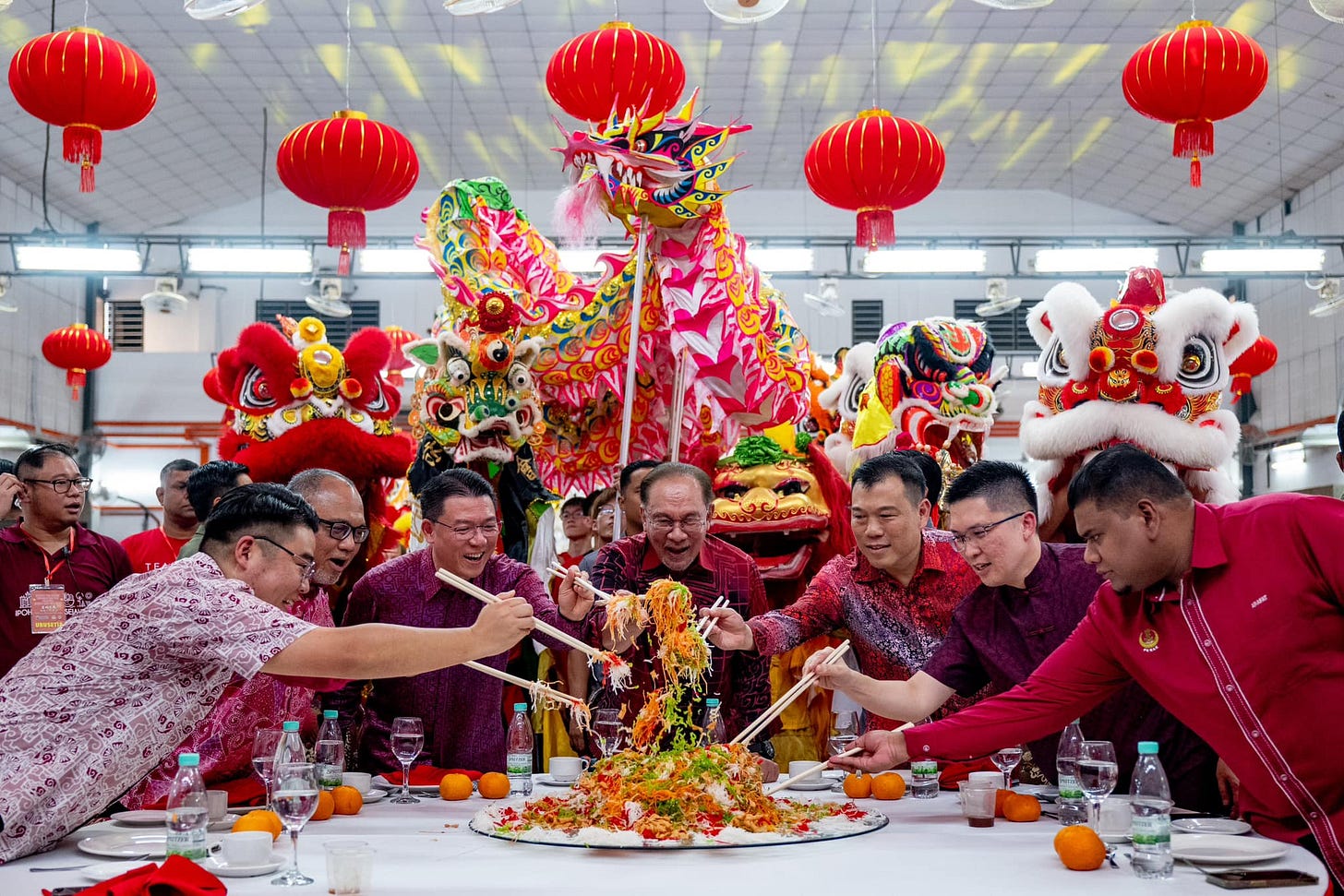Prime Minister Anwar Ibrahim has rightly emphasized the importance of national unity and development in Malaysia’s multi-racial society.
Few would disagree with this vision—except for those who are outright racists or religious bigots.
However, Malaysia has seen very few national leaders willing to truly walk the talk on unity and progress.
The time has certainly come for Anwar to lead by example, proving that he can move beyond racial and religious politics to embrace a broader national framework.
Yet, despite his rhetoric on diversity and pluralism, Anwar remains entrenched in the same ethno-religious dynamics that have long defined Malaysian politics.
Over the past two years, he has shown little indication that he is capable of transcending race and religion in governance.
In fact, he appears no different from his predecessors—except that he masks his true inclinations behind the facade of progressive reform.
Anwar’s rise to power was firmly rooted in the existing Malay hegemonic framework.
Without it, he would not have become prime minister in the first place.
His promises of sweeping reforms were, in retrospect, more about political posturing than genuine transformation.
If he truly believes in dismantling Malaysia’s deeply entrenched racial and religious structures, he must take concrete steps to do so.
Is he bold enough to ensure a more balanced ethnic composition in the civil service, which remains overwhelmingly Malay?
Will he address the dominance of Malays in public universities and matriculation programs by ensuring fairer admissions for non-Malay citizens?
Or will he resort to the well-worn excuse that any such move would violate the so-called “social contract” between ethnic groups?
Symbolic gestures—such as asking Malay extremists not to oppose Chinese New Year celebrations or attending Thaipusam—are insufficient.
Real reform requires dismantling institutionalized racism, something Anwar seems either unwilling or incapable of doing.
First, he lacks the intellectual conviction to appreciate why a race-based system must be overhauled for the sake of national unity and progress.
Second, his political survival depends on maintaining the very system he claims to challenge. Any serious attempt at reform would likely shorten his tenure in power.
Structurally speaking, Anwar’s multi-racial rhetoric is little more than political theater.
He remains bound by the same racial framework that has shaped Malaysia’s leadership for decades.
In short, Anwar should stop pretending to be a great reformer. He has proven to be a major disappointment to Malaysians who had hoped for genuine change.
P. Ramasamy
Former professor of political economy at Universiti Kebangsaan Malaysia (UKM) and former deputy chief minister of Penang.
Subscribe Below:




Idealism vs realities ..
A great way to spread the new Wuhan virus. Every Picture Tells a Story. Like his predecesors in government Anwar is seen at a banquet in whch he will be betrayed by those present and sold for that proverbial 30 pieces of silver. A Last supper?.